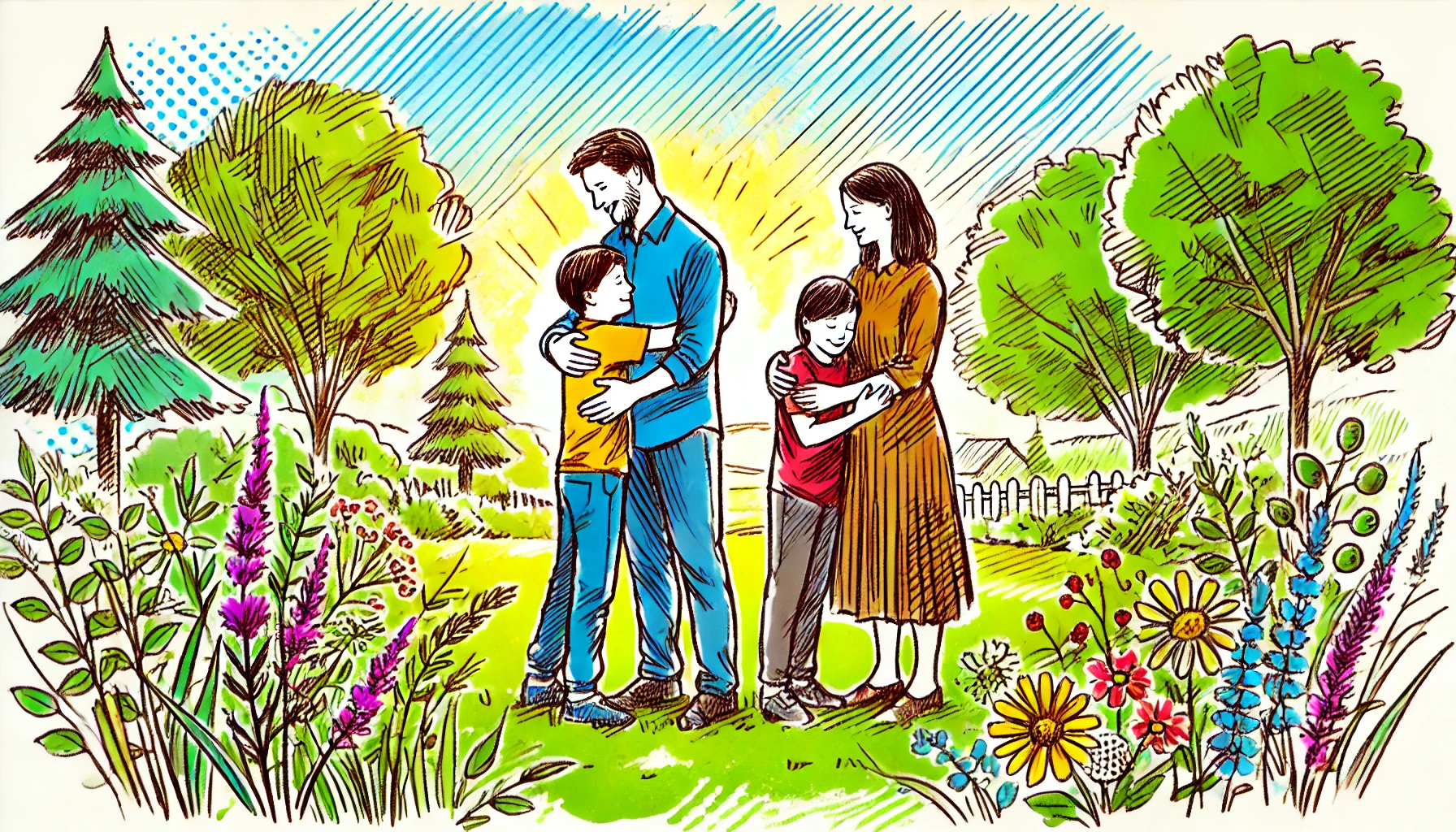Family conflicts are inevitable, stemming from differences in opinions, values, and personalities. These conflicts can lead to hurt feelings, misunderstandings, and lasting grudges if not resolved effectively. One of the most powerful tools for resolving family conflicts and maintaining harmony is forgiveness. Forgiveness helps heal emotional wounds, rebuild trust, and strengthen family bonds. It allows family members to move past their grievances and work towards a healthier, more supportive relationship.
Understanding the importance of forgiveness in family conflicts is crucial for fostering a loving and harmonious family environment. This blog explores ten key reasons why forgiveness is essential in resolving family conflicts and offers practical tips for incorporating forgiveness into family dynamics.
- Healing Emotional Wounds
- Forgiveness allows individuals to release feelings of anger, resentment, and hurt.
- It helps heal emotional wounds caused by conflicts, promoting emotional well-being.
- Letting go of negative emotions reduces stress and anxiety, improving overall mental health.
- Forgiveness enables family members to process their emotions and find closure.
- Healing emotional wounds fosters a more positive and peaceful family atmosphere.
- Rebuilding Trust
- Forgiveness is a crucial step in rebuilding trust between family members.
- It demonstrates a willingness to move past the conflict and work towards repairing the relationship.
- Trust is essential for open and honest communication, which is vital for resolving future conflicts.
- Rebuilding trust strengthens the foundation of the family, promoting stability and security.
- A trusting environment encourages family members to be more vulnerable and authentic with each other.
- Strengthening Family Bonds
- Forgiveness strengthens family bonds by fostering understanding and empathy.
- It encourages family members to support each other despite their differences.
- Strong family bonds provide a sense of belonging and security for all members.
- Forgiveness promotes unity and cooperation, helping the family work together as a team.
- A forgiving family environment nurtures love, respect, and mutual appreciation.
- Promoting Emotional Well-Being
- Holding onto grudges and resentment can negatively impact emotional well-being.
- Forgiveness helps release these negative emotions, leading to greater happiness and contentment.
- It reduces the emotional burden on individuals, allowing them to focus on positive aspects of their relationships.
- Promoting forgiveness in the family enhances overall mental health and reduces the risk of depression and anxiety.
- Emotional well-being contributes to a more harmonious and joyful family life.
- Enhancing Communication
- Forgiveness opens the door to honest and open communication between family members.
- It encourages individuals to express their feelings and concerns without fear of judgment or retaliation.
- Effective communication is key to resolving conflicts and preventing misunderstandings.
- Forgiveness helps break down communication barriers, fostering a more connected and understanding family dynamic.
- Enhanced communication strengthens relationships and promotes a supportive family environment.
- Setting a Positive Example
- Forgiveness sets a positive example for children and other family members.
- It teaches the importance of empathy, compassion, and understanding in relationships.
- Modeling forgiveness encourages younger family members to practice it in their own interactions.
- Setting a positive example promotes a culture of forgiveness and kindness within the family.
- A forgiving family environment nurtures emotionally intelligent and resilient individuals.
- Reducing Stress and Tension
- Unresolved conflicts and lingering resentment can create stress and tension within the family.
- Forgiveness helps reduce this stress, leading to a more peaceful and relaxed family atmosphere.
- It prevents conflicts from escalating and minimizes the emotional toll on family members.
- Reducing stress and tension improves overall family dynamics and promotes a healthier living environment.
- A calm and harmonious family life enhances the well-being of all members.
- Encouraging Personal Growth
- Forgiveness encourages personal growth by challenging individuals to reflect on their actions and emotions.
- It promotes self-awareness and self-improvement, fostering emotional maturity.
- Forgiveness helps individuals develop resilience and coping skills for dealing with conflicts.
- Encouraging personal growth within the family strengthens the overall family dynamic.
- Personal growth contributes to more fulfilling and meaningful relationships with family members.
- Preventing Future Conflicts
- Forgiveness helps prevent future conflicts by addressing the underlying issues and emotions.
- It promotes a proactive approach to conflict resolution, focusing on understanding and empathy.
- Preventing future conflicts reduces the risk of recurring issues and promotes long-term harmony.
- Forgiveness encourages family members to address conflicts early and constructively.
- A proactive approach to conflict resolution strengthens the family’s ability to handle challenges together.
- Fostering a Culture of Forgiveness
- Promoting forgiveness within the family fosters a culture of understanding and compassion.
- It encourages family members to prioritize their relationships over their grievances.
- A culture of forgiveness promotes a supportive and loving family environment.
- It helps create a legacy of emotional intelligence and resilience for future generations.
- Fostering a culture of forgiveness ensures that conflicts are resolved constructively and respectfully.
Conclusion
Forgiveness is a powerful tool for resolving family conflicts and promoting a harmonious family environment. By healing emotional wounds, rebuilding trust, and strengthening family bonds, forgiveness fosters understanding, empathy, and open communication. It sets a positive example for children, reduces stress and tension, and encourages personal growth. Promoting forgiveness within the family helps prevent future conflicts and fosters a culture of compassion and support.
Incorporating forgiveness into family dynamics is essential for maintaining healthy, loving relationships. By prioritizing forgiveness, families can navigate conflicts constructively, strengthen their connections, and create a more harmonious and supportive family environment where every member feels valued and understood.

